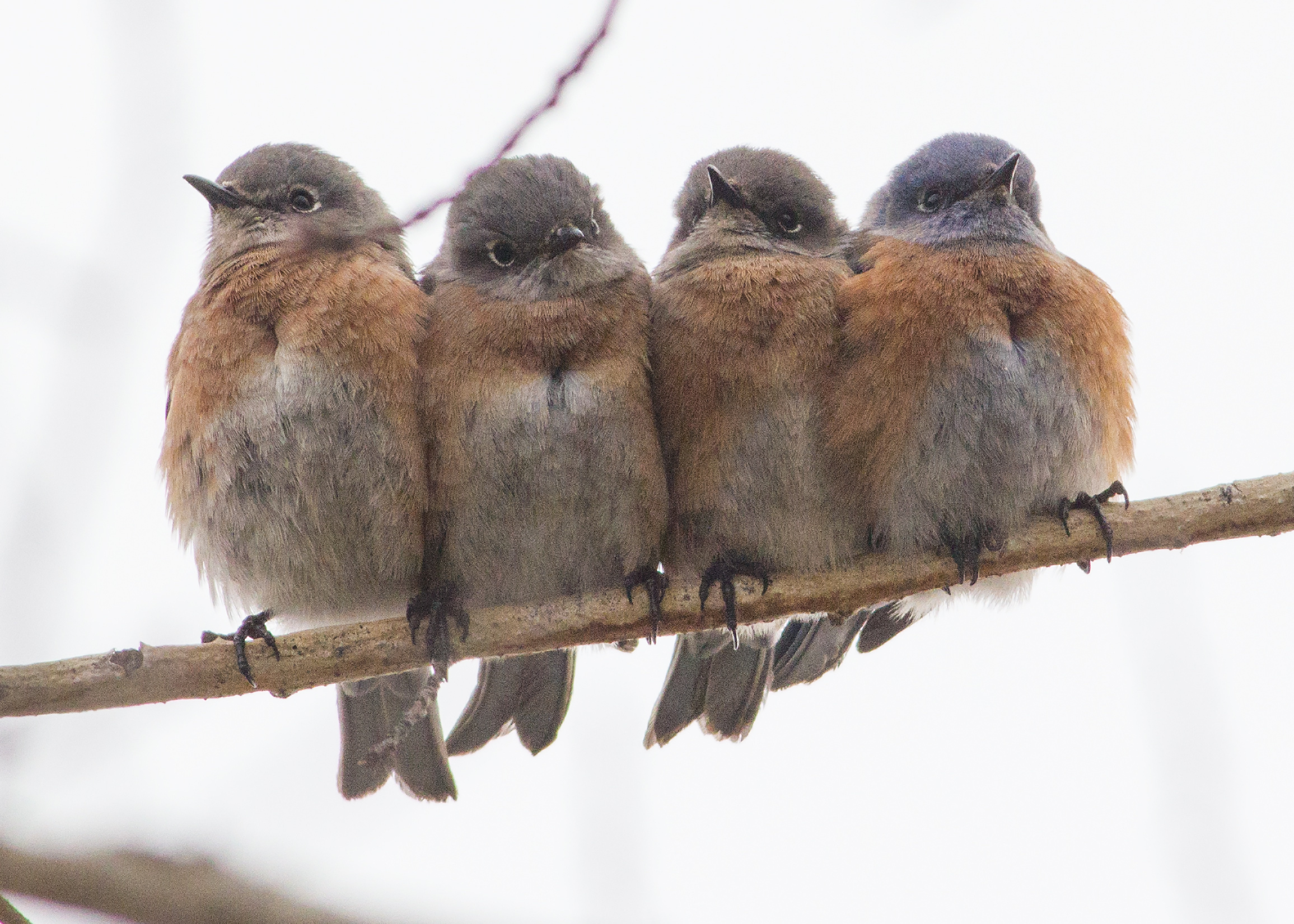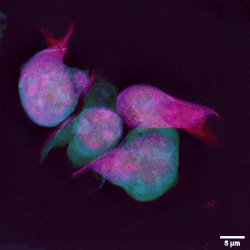|
António A. De Freitas
António A. de Freitas (born December 22, 1947), is an immunologist. He is Portuguese, born in Cuamba, Mozambique. He earned his M.D. in 1970 from the University of Lisbon, Portugal, and his Ph.D. in 1976 from the University of Glasgow, Scotland, UK. He is Professor at the Pasteur Institute, Paris, France where he directs a research unit and a URA CNRS. He was head of the Department of Immunology of the Pasteur Institute from 1997-2000. His major scientific contributions are in the area of lymphocyte homeostasis. In 2009 he published a textbook in immunology entitled "Tractus immuno-logicus: a brief history of the immune system". In 2010 received a European Research Council The European Research Council (ERC) is a public body for funding of scientific and technological research conducted within the European Union (EU). Established by the European Commission in 2007, the ERC is composed of an independent Scientific ... advanced grant. Publications *Freitas has been inv ... [...More Info...] [...Related Items...] OR: [Wikipedia] [Google] [Baidu] |
Immunology
Immunology is a branch of medicineImmunology for Medical Students, Roderick Nairn, Matthew Helbert, Mosby, 2007 and biology that covers the medical study of immune systems in humans, animals, plants and sapient species. In such we can see there is a difference of human immunology and comparative immunology in veterinary medicine and animal biosciences. Immunology measures, uses charts and differentiate in context in medicine the studies of immunity on cell and molecular level, and the immune system as part of the physiological level as its functioning is of major importance. In the different states of both health, occurring symptoms and diseases; the functioning of the immune system and immunological responses such as autoimmune diseases, allergic hypersensitivities, or in some cases malfunctioning of immune system as for example in immunological disorders or in immune deficiency, and the specific transplant rejection) Immunology has applications in numerous disciplines of ... [...More Info...] [...Related Items...] OR: [Wikipedia] [Google] [Baidu] |
The Economist
''The Economist'' is a British weekly newspaper printed in demitab format and published digitally. It focuses on current affairs, international business, politics, technology, and culture. Based in London, the newspaper is owned by The Economist Group, with its core editorial offices in the United States, as well as across major cities in continental Europe, Asia, and the Middle East. In 2019, its average global print circulation was over 909,476; this, combined with its digital presence, runs to over 1.6 million. Across its social media platforms, it reaches an audience of 35 million, as of 2016. The newspaper has a prominent focus on data journalism and interpretive analysis over original reporting, to both criticism and acclaim. Founded in 1843, ''The Economist'' was first circulated by Scottish economist James Wilson to muster support for abolishing the British Corn Laws (1815–1846), a system of import tariffs. Over time, the newspaper's coverage expanded further into ... [...More Info...] [...Related Items...] OR: [Wikipedia] [Google] [Baidu] |
European Research Council
The European Research Council (ERC) is a public body for funding of scientific and technological research conducted within the European Union (EU). Established by the European Commission in 2007, the ERC is composed of an independent Scientific Council, its governing body consisting of distinguished researchers, and an Executive Agency, in charge of the implementation. It forms part of the framework programme of the union dedicated to research and innovation, Horizon 2020, preceded by the Seventh Research Framework Programme (FP7). The ERC budget is over €13 billion from 2014 – 2020 and comes from the Horizon 2020 programme, a part of the European Union's budget. Under Horizon 2020 it is estimated that around 7,000 ERC grantees will be funded and 42,000 team members supported, including 11,000 doctoral students and almost 16,000 post-doctoral researchers. Researchers from any field can compete for the grants that support pioneering projects. The ERC competitions are open ... [...More Info...] [...Related Items...] OR: [Wikipedia] [Google] [Baidu] |
Annual Review Of Immunology
The ''Annual Review of Immunology'' is a peer-reviewed scientific journal published by Annual Reviews. It releases an annual volume of review articles relevant to the field of immunology. It was first published in 1983 with inaugural editor William E. Paul; Paul remained editor for the journal's first thirty years. As of 2022, its editor is Wayne M. Yokoyama and its 2021 impact factor is 32.481, ranking it third of 161 journals in the category "Immunology". History During the 1982 Midwinter Conference of Immunologists at the Asilomar Conference Grounds, a meeting of prominent immunologists was convened to discuss the need for a new journal that published review articles about immunological topics. Interest was high, with many meeting attendees agreeing that such a journal would be useful and offering to write a review for the first volume. The ''Annual Review of Immunology'' was first published in 1983, making it the twenty-fifth journal title published by the nonprofit publishe ... [...More Info...] [...Related Items...] OR: [Wikipedia] [Google] [Baidu] |
Homeostasis
In biology, homeostasis (British English, British also homoeostasis) Help:IPA/English, (/hɒmɪə(ʊ)ˈsteɪsɪs/) is the state of steady internal, physics, physical, and chemistry, chemical conditions maintained by organism, living systems. This is the condition of optimal functioning for the organism and includes many variables, such as body temperature and fluid balance, being kept within certain pre-set limits (homeostatic range). Other variables include the pH of extracellular fluid, the concentrations of sodium, potassium and calcium ions, as well as that of the blood sugar level, and these need to be regulated despite changes in the environment, diet, or level of activity. Each of these variables is controlled by one or more regulators or homeostatic mechanisms, which together maintain life. Homeostasis is brought about by a natural resistance to change when already in the optimal conditions, and equilibrium is maintained by many regulatory mechanisms: it is thought to be ... [...More Info...] [...Related Items...] OR: [Wikipedia] [Google] [Baidu] |
Lymphocyte
A lymphocyte is a type of white blood cell (leukocyte) in the immune system of most vertebrates. Lymphocytes include natural killer cells (which function in cell-mediated, cytotoxic innate immunity), T cells (for cell-mediated, cytotoxic adaptive immunity), and B cells (for humoral, antibody-driven adaptive immunity). They are the main type of cell found in lymph, which prompted the name "lymphocyte". Lymphocytes make up between 18% and 42% of circulating white blood cells. Types The three major types of lymphocyte are T cells, B cells and natural killer (NK) cells. Lymphocytes can be identified by their large nucleus. T cells and B cells T cells (thymus cells) and B cells ( bone marrow- or bursa-derived cells) are the major cellular components of the adaptive immune response. T cells are involved in cell-mediated immunity, whereas B cells are primarily responsible for humoral immunity (relating to antibodies). The function of T cells and B cells is to recognize sp ... [...More Info...] [...Related Items...] OR: [Wikipedia] [Google] [Baidu] |
CNRS
The French National Centre for Scientific Research (french: link=no, Centre national de la recherche scientifique, CNRS) is the French state research organisation and is the largest fundamental science agency in Europe. In 2016, it employed 31,637 staff, including 11,137 tenured researchers, 13,415 engineers and technical staff, and 7,085 contractual workers. It is headquartered in Paris and has administrative offices in Brussels, Beijing, Tokyo, Singapore, Washington, D.C., Bonn, Moscow, Tunis, Johannesburg, Santiago de Chile, Israel, and New Delhi. From 2009 to 2016, the CNRS was ranked No. 1 worldwide by the SCImago Institutions Rankings (SIR), an international ranking of research-focused institutions, including universities, national research centers, and companies such as Facebook or Google. The CNRS ranked No. 2 between 2017 and 2021, then No. 3 in 2022 in the same SIR, after the Chinese Academy of Sciences and before universities such as Harvard University, MIT, or Stanford ... [...More Info...] [...Related Items...] OR: [Wikipedia] [Google] [Baidu] |
Nature Immunology
''Nature Immunology'' is a monthly peer-reviewed scientific journal covering immunology. It was established in 2000, as an expansion of the ''Nature'' family of journals. The editor-in-chief is Jamie D. K. Wilson. According to the ''Journal Citation Reports'', the journal has a 2021 impact factor The impact factor (IF) or journal impact factor (JIF) of an academic journal is a scientometric index calculated by Clarivate that reflects the yearly mean number of citations of articles published in the last two years in a given journal, as ... of 31.250, ranking it 4th out of 161 journals in the category "Immunology". References External links *{{Official website, http://www.nature.com/ni/index.html Publications established in 2000 Immunology journals Nature Research academic journals Monthly journals English-language journals ... [...More Info...] [...Related Items...] OR: [Wikipedia] [Google] [Baidu] |
Cuamba
Cuamba is a city and district of Niassa Province in Mozambique, lying north west of Mount Namuli. Before independence the town was known as ''Nova Freixo'' (New Ash). It lies on the EN8 road, which connects it to the city of Nampula in the east and to the Malawian border in the west. History Cuamba was created by the Niassa Company, a royal charter company in what was then known as Portuguese East Africa. The land concession of the Niassa Company extended from 1891 and 1929, and it established a military outpost initially called Kuamba in this period. The name referred to a small kingdom in the area, and Cuamba became the official name of the settlement in 1937. Its name was changed to Nova Freixo in 1952, a reference to the city of Freixo de Espada à Cinta, Portugal, the birthplace of Sarmento Rodrigues (1899-1979), the colonial governor-general of Mozambique. The town reverted to its original name of Cuamba in 1976, and was elevated to city status in 1971. Transport It li ... [...More Info...] [...Related Items...] OR: [Wikipedia] [Google] [Baidu] |
Paris
Paris () is the capital and most populous city of France, with an estimated population of 2,165,423 residents in 2019 in an area of more than 105 km² (41 sq mi), making it the 30th most densely populated city in the world in 2020. Since the 17th century, Paris has been one of the world's major centres of finance, diplomacy, commerce, fashion, gastronomy, and science. For its leading role in the arts and sciences, as well as its very early system of street lighting, in the 19th century it became known as "the City of Light". Like London, prior to the Second World War, it was also sometimes called the capital of the world. The City of Paris is the centre of the Île-de-France region, or Paris Region, with an estimated population of 12,262,544 in 2019, or about 19% of the population of France, making the region France's primate city. The Paris Region had a GDP of €739 billion ($743 billion) in 2019, which is the highest in Europe. According to the Economist Intelli ... [...More Info...] [...Related Items...] OR: [Wikipedia] [Google] [Baidu] |
Pasteur Institute
The Pasteur Institute (french: Institut Pasteur) is a French non-profit private foundation dedicated to the study of biology, micro-organisms, diseases, and vaccines. It is named after Louis Pasteur, who invented pasteurization and vaccines for anthrax and rabies. The institute was founded on 4 June 1887, and inaugurated on 14 November 1888. For over a century, the Institut Pasteur has researched infectious diseases. This worldwide biomedical research organization based in Paris was the first to isolate HIV, the virus that causes AIDS, in 1983. Over the years, it has been responsible for discoveries that have enabled medical science to control diseases such as diphtheria, tetanus, tuberculosis, poliomyelitis, influenza, yellow fever, and plague. Since 1908, ten Institut Pasteur scientists have been awarded the Nobel Prize for medicine and physiology—the 2008 Nobel Prize in Physiology or Medicine was shared between two Pasteur scientists. History The Institut Pasteur ... [...More Info...] [...Related Items...] OR: [Wikipedia] [Google] [Baidu] |





.jpg)

